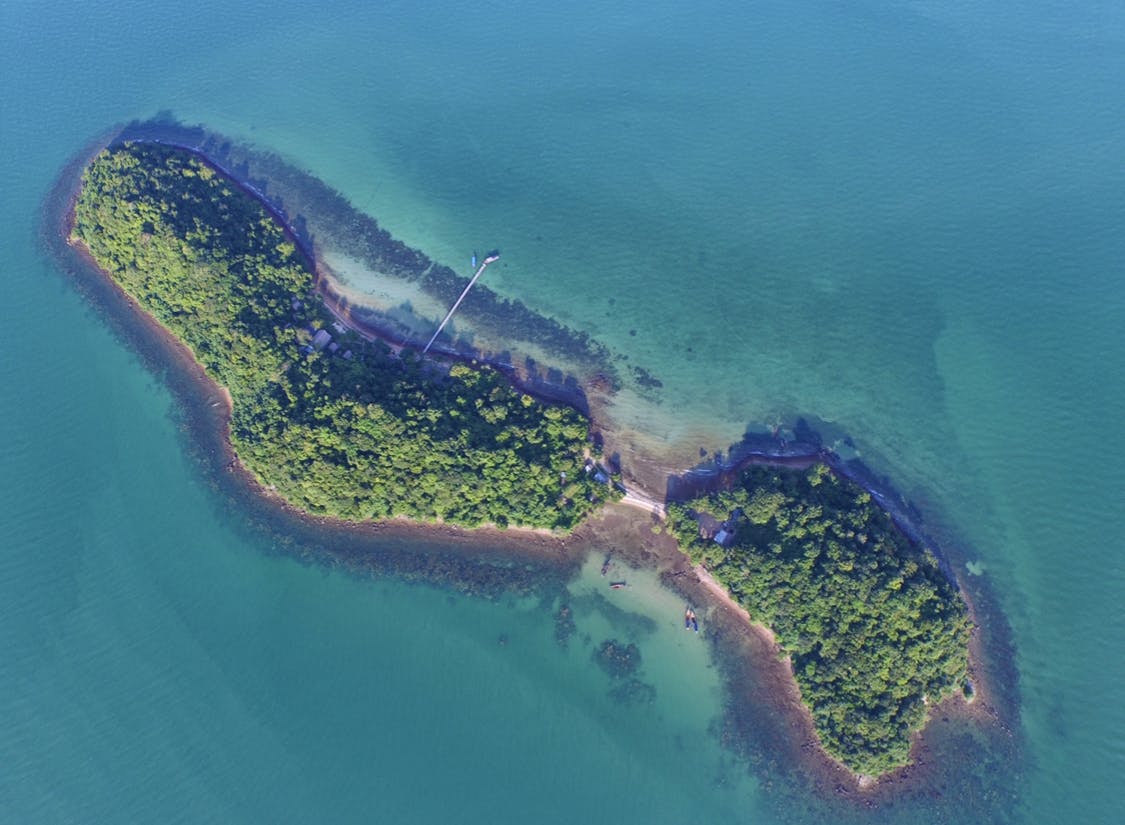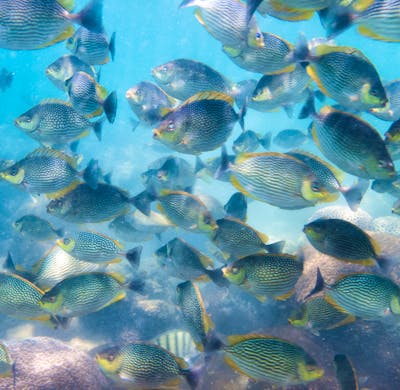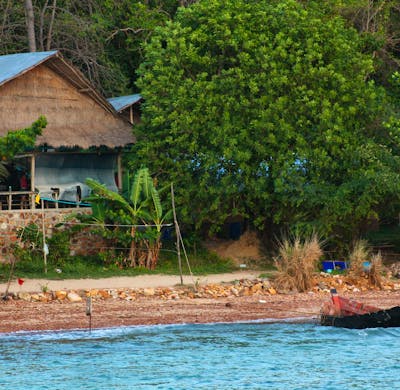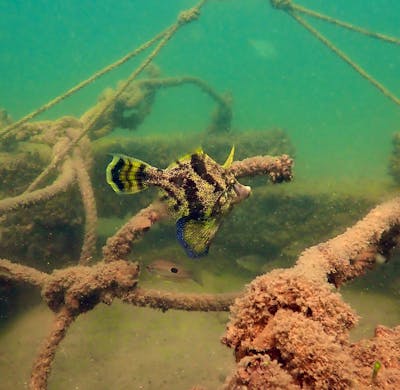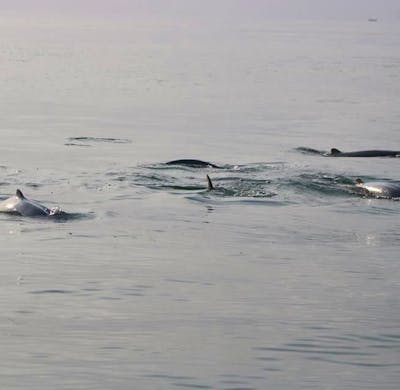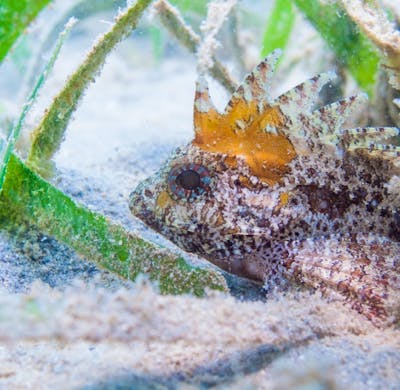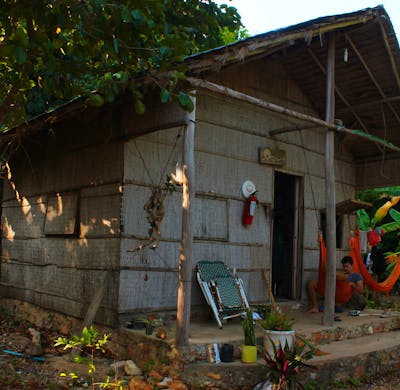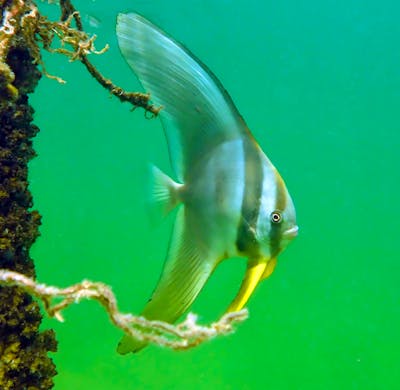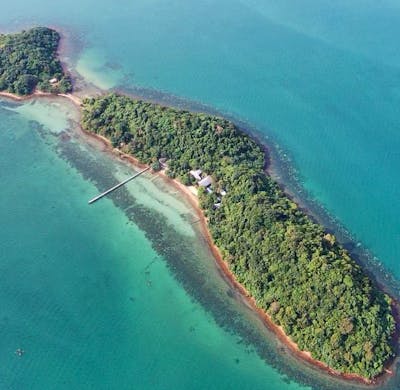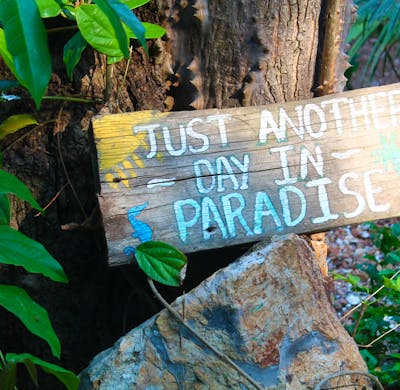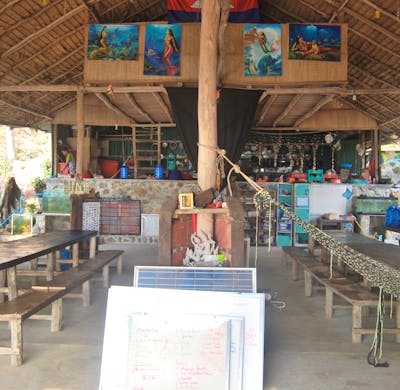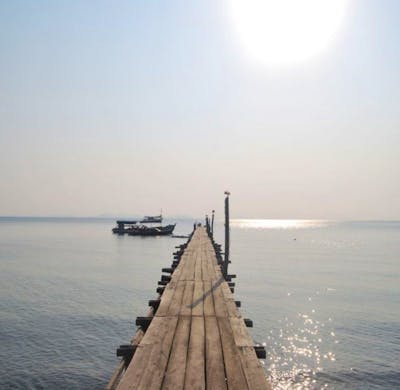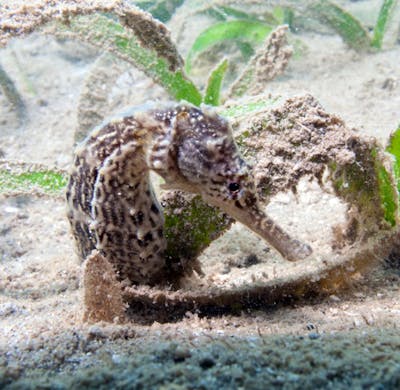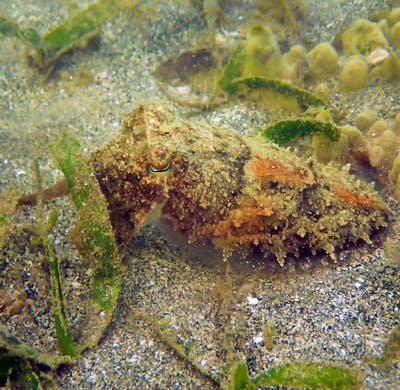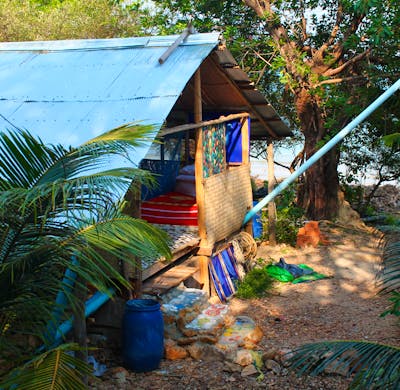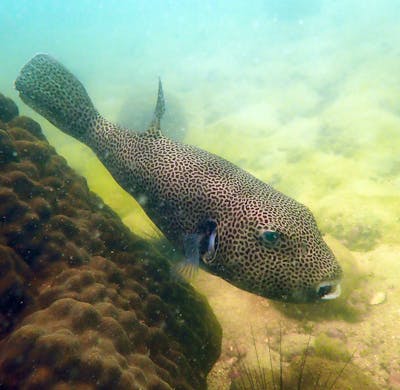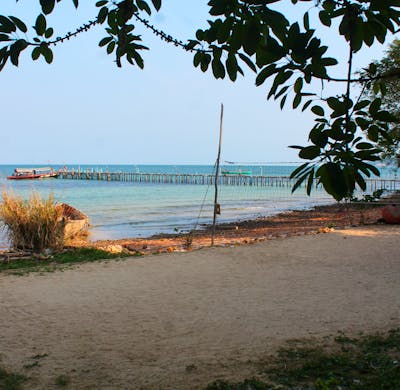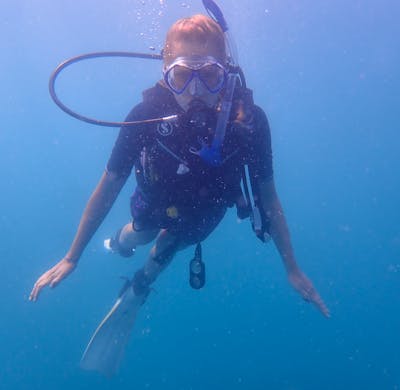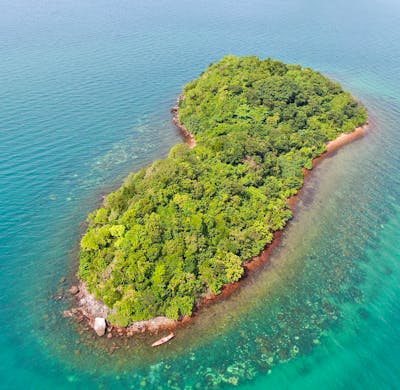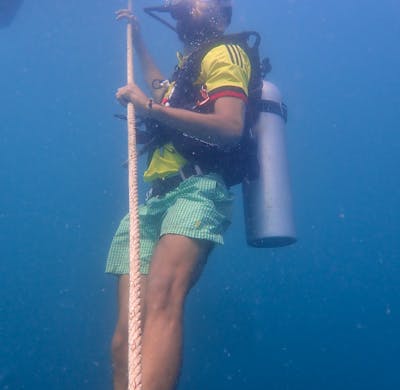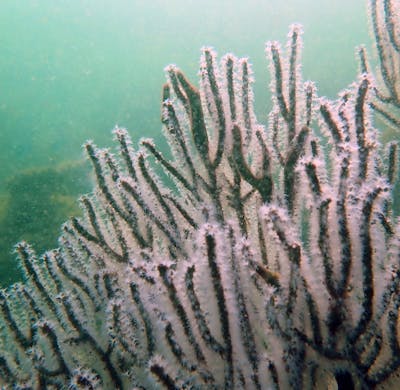What is MCC?
Marine Conservation Cambodia (MCC) is an NGO that has been protecting Cambodia’s ocean
since 2008. We were the very first organization to actively work on and pay attention to
marine conservation in this country. Based on ‘Koh Rong Samloem’ our team researched the
area and assisted local communities to enforce Cambodian fisheries laws in order to save the
marine life and habitats. After successfully setting up a Marine Fisheries Management Area
(MFMA) and being joined on site by other organizations, the Cambodian Government invited
us to re-locate to the wild east coast of Cambodia where no conservation work was being
carried out and protection was deeply needed.
Since we arrived in 2014 on ‘Koh Ach Seh’, an uninhabitated island in Cambodia’s Kep
Archipelago since the Khmer Rouge, incredible changes have occurred and marine life is
returning and thriving way faster than we could have imagined. After three and a half years
of intensive surveys, patrols and report writing we had the confirmation that our
recommendation for the second Marine Fisheries Management Area (MFMA), in Cambodia,
the first in Kep province has been approved. Our efforts culminated by its approval in the
2017 National Plan of Action which has drastically improved the area and enabled us to
protect critical ecosystem like our seagrass, fringing reef, mangrove and shell beds!
We work at stopping IUU (Illegal Unreported and Unregulated) fishing activities in Kep sea in
partnership with the Fisheries Department and their officers. MCC’s ongoing relationship
with the National Policy Makers also allow us to influence the creation and implementation
of tailored protection scheme on a provincial and national level. Our long-lasting
collaboration with the smallscale fishermen brought us an awareness of the most pressing
issues they encounter. This partnership allows us to work toward ensuring a long-term
sustainable livelihood for those fishermen and the next generation.
Our independence and our bottom up/top down approach give us the possibilities to focus
our energy toward the completion of the most critical tasks in the most efficient way. Having
clear goals, but working in a constantly evolving environment, our adaptability enables us to
concentrate our effort on what’s most critical for the ocean. It also gives us the possibility to
quickly answer to the needs of our multiple collaborators in various ways, from surveying
the coral reefs of an island for the 1st time to supporting the fisheries department in ocean
patrol against destructive poachers. The organization has many facets, including ecological and social science research and collecting data to use in the implementation of conservation
legislation to achieve our goals.
MCC projects
Due to our constantly evolving environment and context, MCC’s projects change regularly.
For all these projects we can provide full training and support to get you up to a level where
your collected data can and will be used within MCC’s reports and publications.
The Cambodian Marine Mammal Project:
Our Marine Mammal project is a researchled and community-based project working towards safeguarding Cambodia’s
endangered Marine Mammals with a current focus on the Irrawaddy dolphins and
Dugongs of Kep Archipelago. It is currently the only long-term study of Cambodia’s
marine population of the endangered Irrawaddy dolphins. In 2022, we expanded this
work to the neighboring province of Kampot and now include the Indo Pacific
Humpback Dolphins as part of our research program. This program is headed by
Cambodian researchers under the supervision of a Marine Mammal Scientist.
Seagrass Monitoring Project:
Cambodian Seagrass Conservation Project is working to
protect and expand seagrass meadows in Cambodia’s coastal waters, while also
helping the local communities that rely on seagrass-related resources. This project
aims to map the extent, species composition and abundance of seagrasses across
Kep and Kampot provinces. Starting at Koh Seh, the seagrass project works to better
understand seagrass ecology over different temporal and spatial scales, including
assessments of species growth rates, reproductive cycles and response to damage.
Working with the seagrass squad you would contribute toward directing protected
area zone management, identify biodiversity hotspots and threat-spots, and inform
strategies for meadow expansion.
Outreach Project:
Working with local schools and universities, we provide advocacy
and education on marine research and conservation, our local university internships,
have produced some of Cambodia’s leading marine conservationists and researchers.
Marine Litter and Plastics Project:
Ocean plastics and rubbish is an increasing
problem. Our team organizes local cleanups and attempts to address ocean pollution
on a local scale.
Alternative Livelihoods:
Marine Conservation Cambodia is actively working on
providing alternative livelihood solutions for local communities. Due to the decline in
the overall fisheries resources, it is essential that alternatives to illegal and
destructive fishing are found. By looking at socio-demographic and our marine data,
we can begin to identify possible solutions for livelihood improvement and
alternative livelihoods.
Marine Harvesting Network:
The Marine Harvesting Network Project (MHN) was set
up to monitor fishing pressure within the Kep MFMA and to promote and protect
small-scale and sustainable fishing practices. With our Marine Mammal and seagrass
teams constantly on the water, we can monitor all fishing activities including illegal
and legal to build a better understanding of fishing pressure, this allows us to give
adaptive management solutions with regards to the Management of the MFMA.
What does volunteering with MCC mean?
The first and most important thing is to understand, that being part of MCC means being
part of a hard-working, fast paced, and hands-on group of people. Living and working on Koh
Ach Seh doesn’t feel like and isn’t supposed to be a nice, relaxing holiday trip. While some
aspects may be movie worthy, don’t expect to lie in a hammock all day. From moving our
concrete blocks, cleaning the dishes, scrubbing the dive shed or washing our speed boat,
there will be plenty of tasks that do require physical labor. All of these tasks are vital for
MCC’s work and are a part of living on Koh Ach Seh. Depending on current projects, the research work you do might also be physically demanding, not to forget the tropical climate.
For these reasons, it can be an intense experience for both body and mind.
Within MCC you will find a lot of different kind of people with different working methods
and personalities. It’s important for us that you stay true to yourself, while not forgetting the
overall goal and team spirit. We are looking for dedicated, motivated and hard-working
people. Please note, priority will be given to those who can commit to 2 or more months;
because the more time you spend with us, the more you learn, the more valuable and
impactful your work can be. Also remember the learning and acclimatization period does
take time.
Bungalows:
While living on Koh Ach Seh you will be staying in gender divided bungalows shared between
two to six people, staff and volunteers mixed. Every room contains three bunk-beds with mosquito nets, power and light at night as well as an en suite bathroom with a rainwater
bucket shower and toilet. This is not a luxury retreat; walls have holes and geckos and rats
living in the neighboring jungle sometimes pay you a visit. You basically live one with nature.
Internet:
We have no Wifi on the island and use personal mobile data if we want to access the
internet. If you need or want internet access while you are here, the best Cambodia
networks with data signals on the island are either ‘C-Tel’, ‘Smart’ or ‘Metfone’ with varying
reliability in different places. If you are coming from Vietnam, we would strongly advise you
to buy a Vietnamese Sim card, namely ‘Viettel’ since the Vietnamese data signals are way
stronger. Don’t expect to be able to stream Netflix, the signal is mostly too unstable for that.
Buy a 4G sim card on the mainland ($1 to 4, available at every market or tech shop), buy
some top up cards and type in the code shown. You then need a code to convert the money
into data, kindly ask the employees at the shop to help you do this, choose whichever plan
suits you. Many of our staff/volunteers are on the $5 plan which lasts for a month and is
50GB or $1 which lasts for 1 week.
Emergencies:
Living on our island, we are fortunate to have quick access to the mainland, as it only takes
20 minutes by speed boat to reach necessary resources and medical assistance if needed.
While we do have a species of venomous snakes here, it is essential to remember that their
bites are not deadly. We have never encountered any issues with snake bites, and we strive
to maintain a safe environment for all residents.
Nevertheless, it is always wise to exercise caution and take necessary precautions to prevent
potential emergencies. We understand that emergencies can occur unexpectedly, and we
are prepared to handle them efficiently. In urgent situations, we have the option to utilize
the speed boat for immediate transportation to the mainland. However, it is important to
note that this mode of transport is strictly reserved for genuine emergencies.
For regular illnesses or non-life-threatening conditions, our standard practice is to wait for
the next planned boat trip to the mainland.
Transport to and in Cambodia:
We would advise downloading either the ‘Pass’ or ‘Grab’ App for Tuk Tuks, they are very
easy and act like Uber, where you can book online and they come within a few minutes.
Booking a Tuk Tuk driver by hour is also an option. Using apps like these also provides
protection of being overly charged and can generally be used as a guideline for prices. Please
be aware that there might be no drivers for these Apps in more remote areas, but don’t
worry. You will always find a Tuk Tuk or a way to get around.
You can also rent a scooter for a reasonable price, but please be aware that driving, roads
and traffic in Cambodia is quite different in comparison to Western countries and can be
dangerous.
Please also note that it might take longer than usual to get through the airport in Phnom
Penh, so allow plenty of time for this before your destined time of departure to Kep or
elsewhere. Remember: if you need a negative PCR result to fly home, you will need to test in
Phnom Penh with enough time to be authorized for travel e.g. leave the island two days
before your flight.
Recommended accommodation in Phnom Penh:
● Cheap: Top Banana Hostel
● Mid-range: YK Arthouse or House Boutique Eco Hotel
● More Expensive: Okay Boutique
Transport to Kep:
There are mainly two good ways to get from Phnom Penh to Kep city:
Taking a Tuk Tuk from the airport to Phnom Penh city center ($10) and afterwards a
Bus from Phnom Penh city center to Kep city($10 ticket; duration 4h). It’s best and
easiest to book online via bookmebus or a similar website, even though you can just turn up at the any bus center and ask for an available seat on the next
bus.
Taxi is also an option; it is faster but more expensive ($50-60) and can be booked via bookmebus or a similar website as well.
Recommended accommodation in Kep:
● Cheap: Khmer House Hostel or Captain Chim’s Guesthouse
● Mid-range: Khmer Hands Guesthouse or Botanica Guesthouse
● More Expensive: The Beach House
Transport to Koh Ach Seh:
Only MCC’s supply boat travels to Koh Ach Seh, so no need to purchase a ticket. Our boat
leaves at 3:00 pm from Rabbit Island Pier in Kep Town every Wednesday, Friday and Sunday.
Our days of arrival are every first and third Sunday of the month. MCC’s supply boat is red
and black and different to the normal green boats parking at the Pier. If you can’t find it, just
ask anybody for the boat to the conservation on Koh Ach Seh.
If you tend to get motion sickness, it's important to bring medicine for boat rides. It can
really help you feel better and have a more enjoyable time on the water.
Visa:
DO NOT get the tourist visa. You need to go to the visa desk on arrival and ask for a 1 month
E-Visa that can be extended if needed in the country, the cost is between 40-45$. It is best to
have a photocopy of your passport and two passport photos, sometimes they ask for them,
sometimes they don't, but better to be prepared.
Costs:
We know that cost is often a deciding factor and sometimes the greatest contributors of
passion and energy struggle financially, as we often do. If we were located on mainland
Cambodia, our cost would be definitely lower but being on a near desert island we need to
bring everything by boat. There is no continuous electricity (generator at night), other
accommodation, market or restaurant on the island, which means higher general costs, but
next to nonextra costs, provided you stay on the island.
The first 4 weeks are to be paid prior to arrival to reserve your place and help us prepare.
The price also goes lower the longer you stay and the more you contribute to the team.
Staying with us for a longer time means you have learned more skills that are useful to our
work and that also means a greater contribution on your part. If you stay longer than 3
months with us, we can work out a payment plan with you.
The price includes everything provided on the island:
● all food, water, tea, coffee
● accommodation
● transport to and from the mainland to Koh Ach Seh
● research training in current projects
● all scuba diving (if qualified)
We are not a business and we are reinvesting all the money we can get to save the
archipelago and its unique ecosystems... Therefore, all of us are all living with a very basic
level of material comfort, same as you.
If you can’t afford those fees, let us know how you can make positive changes to the ocean
in Cambodia and we will try to work something out. Please remember though that your
contribution is what keeps the wheels turning and allows not only you but also us, to
continue making a difference and changing the tide of destruction that affects our Oceans.
Diving:
As you might have realized already, many of our activities happen underwater for which you
need a minimum of Advanced Adventurer (SSI), Advanced Open Water Diver (PADI) or
equivalent certification to dive around here. Provided you have this level of experience, all
diving on the island is for free and in theory unlimited. As long as there’s time and you find a
fitting dive buddy, you can explore the reefs and areas around the island as much and as
often as you want.
If you do not have those certifications yet, you will be at the best place to earn them as we
have a highly qualified and experienced diving instructor team on the island. Our team is
also happy to perform a test dive with you, to help you make the right decision for you.
Please keep in mind, that due to pollution and the water quality in general the visibility is not
great and with some minor exceptions the depth doesn’t exceed 10 meters.
The diving course fees are extra over the volunteer contribution as follows:
● SSI Open Water Diver course is 300 US$
● SSI Advanced Adventurer (provided you already hold an Open Water Diver card) 300
US$
● SSI Open Water Diver and SSI Advanced Adventurer course combined 550 US$
● SSI React right course is 100 US$
● SSI Rescue Diver course is 350 US$ (SSI React right needed)
You can either transfer the money into the same bank accounts as the general fees or pay in
cash, whatever works best for you.
Packing 101:
● Personal laptop
● (video-) camera; useful in certain projects and for capturing memories
● Binoculars, if you have some
● Mosquito repellant
● Sun cream
● Soap, shampoo/conditioner, general cosmetics
● Sunglasses and hat
● Rain jacket/umbrella
● Swimming clothes (no bikini)
● Wet suit (3mm) or rash vest
● Clothing; short and long clothes for mosquito protection recommended, quick-dry
● Shoes; airy but well fitting slippers possibly with extra ankle band recommended
● Adapters
● Portable charger
● USB stick / portable hard drive
● Stationary (pens, pencils, pencil sharpener, eraser and writing paper)
● A photocopy of your passport, your Visa (if possible) and two passport photos
● If you are diving, definitely bring a mask, snorkel and either shoe/closed heel fins or
booties to fit into an open heel fin, and any other dive equipment you have; there are
possibilities to borrow equipment but it’s better to bring what you have
● First aid kit
● Toilet Paper (if needed)
● Face masks
Island and Cambodian etiquette:
● Smile
● Learn some Khmer
● Learn how to toast Khmer style
● Do not give or receive anything with the left hand
● If handing something to an elder, use both hands
● Do not sit higher than an elder
● Do not point at anything with your index finger (use your fully extended hand)
● Do not cross a social circle or people having a conversation (or at least bow if you
need to)
● Never touch somebody’s head
● Do not step over somebody’s leg
● Do not put the sole of your feet toward somebody
● Remove your shoes when entering the Main Bungalow and the kitchen
● Dress appropriately: our team is made up of a mixture of Cambodian and western
staff, for this reason it is important to dress accordingly and respectfully. Women
should wear a swimsuit when swimming (not a bikini) and ideally a t shirt and shorts
too
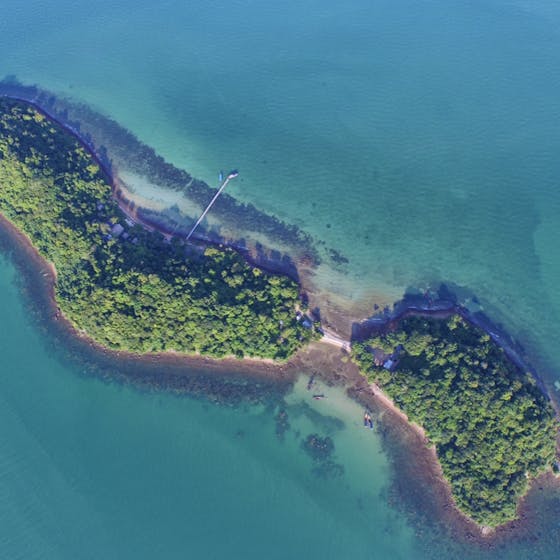
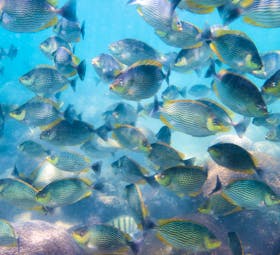
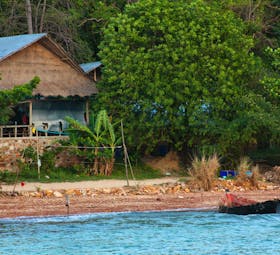
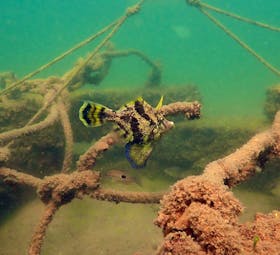
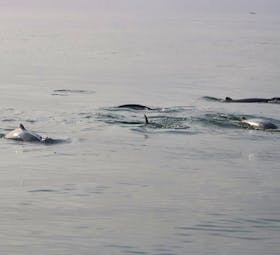
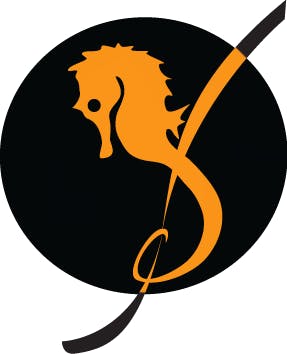
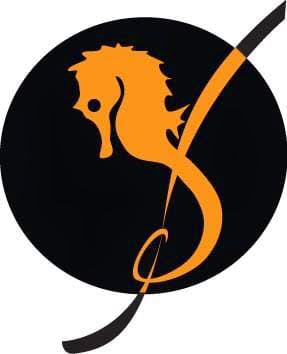
 4.6
4.6

